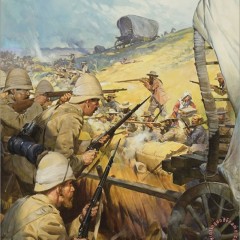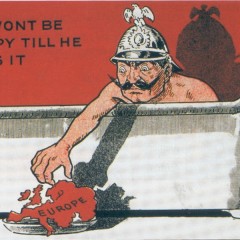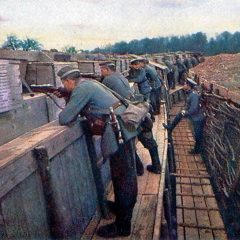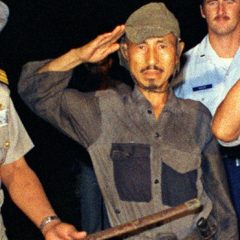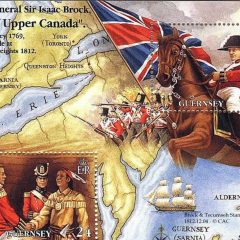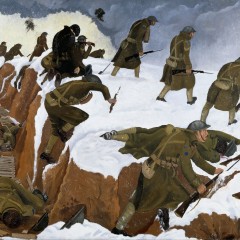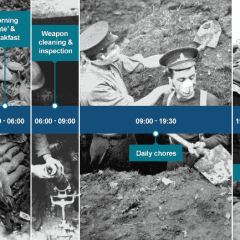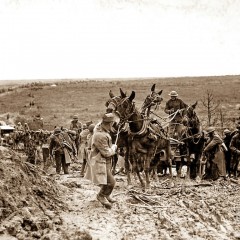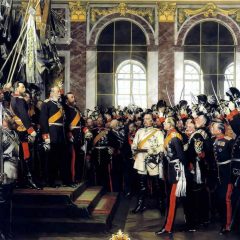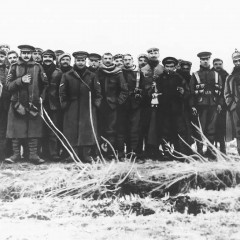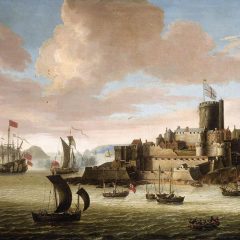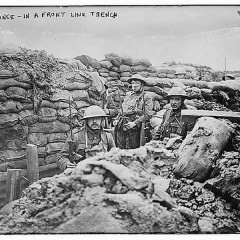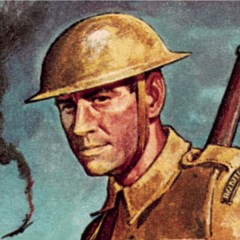Did the British’s experiences in the Boer War help or hinder fighting strategies at the start of the First World War?
World War I for the British – Would it have been worse or was it indeed better than it could have been because of Britain’s experiences in the Boer War some 12 to 15 years earlier ?
Kaiser Wilhelm II – The Man Who Changed Europe Forever
History can often turn on the actions of a single individual, either singly or over a period of time. Personality traits and the whims, especially of absolute monarchs, for either ill or good, can shape our world. Such could be said of Kaiser Wilhelm II of Germany.
4 More Myths About World War I Debunked
2014 was the 100th anniversary of the start of World War I, the supposed “war to end all wars”. It was the first ‘modern mechanised war’ and a lot of myths about it have been built up over the years. In this article we look at some of the bigee “facts” that are just plain wrong
Never Surrender – The Japanese Soldier who was still fighting World War II 29 years after it ended
On the 17th January 2014 Hiroo Onoda, an old Japanese war veteren, died at the age of a 91 – nothing unusual in itself – the generation of soldiers who fought in War War II gets smaller every year. However unlike his comrades this Japanese imperial soldier fought the war a staggering 29 years longer than anyone else
Sir Isaac Brock, Guernseyman and Hero of Upper Canada
Guernseyman General Sir Isaac Brock is credited with saving Canada for the Empire from the attack by the Americans 1812. Knowing how much the Canadians gave in manpower and support in the 2 World Wars to Britain, who knows, but if he had failed the history and fate of modern Britain may have been very different indeed.
Terms Coined from World War I
In wartime nations are often galvanised into frenzied action to innovate and invent in order to try to gain the upper hand in their struggle for survival. As well as technical innovation the language and grammer of war changes also. In this article we look at some of the terms, still in use today, that owe their origins to this conflict.
How Did So Many Soldiers Survive the Trenches ?
One of the most common myths about World War I was that ‘Most Soldiers Died’. The horrific stories and images from the front line all reinforce the idea that fighting in the trenches was one long bloodbath. However the fact is that nearly 9 out of 10 British ‘Tommies’ survived the trenches. But how?
The Guernsey Scottish – The Men from Guernsey who served with the Scots in WWI
In October 1914 the States of Guernsey decided to offer volunteers from the Militia to serve overseas. As part of the agreement to offer these men, these ‘sub-unit’s were to be kept together with a Guernsey identity. This is the story of one of those units the 9th Scottish Divisional Ammunition Column and teh Guernseymen that made it up.
The Guernsey Irishmen – The Men from Guernsey who fought with the Irish in WWI
At the outbreak of war in August 1914 the Guernsey the Militia was mobilised in order to free the Regular Army units of the garrison for overseas service. The States of Guernsey decided to offer volunteers from the Militia to serve overseas. The majority in 1915 went to the 16th Irish Division. This is their story.
Sowing the Seeds of Future Conflict : Germany’s first emperor is crowned in France
Wednesday the 18th of January 1871 was a bitter cold day. At noon, with the smell of smoke in the air from nearby Paris, burning under the Prussian siege and bombardment, a fateful gathering took place in the Palace of Versailles. An event that would play on the minds of the French 43 years later and help to propel Europe’s slide into World War I.
The Day the Guns Fell Silent – Christmas Truce 1914
The First World War is a byword for mud, blood and slaughter on a huge mechanised scale. Men living in squalid trenches only tens of yards apart from each other would daily tear each other to pieces if they got the chance. So then, it is no wonder that the Christmas truce is one of the best-known moments of the WWI. Amid the industrial slaughter, here was a reminder of simple human decency.
The Night Castle Cornet Exploded
Around midnight on Sunday 29 December 1672 the Governor of Guernsey, Viscount Christopher Hatton, was suddenly awoken – by hailstones on his face. His mother lay dead beneath the remains of a ceiling and his house lay in ruins around him. This was the night that Castle Cornet literally exploded around its’ occupants.
5 Myths About World War I Debunked
World War I was supposed to be the “war to end all wars”. It was the first ‘modern mechanised war’ and a lot of myths about it have been built up over the years often by revisionist historians using ‘hind-sight’. Some of these so called “facts” are blinding us to the reality and we are in danger of belittling the experience of soldiers and civilians in this conflict. In this article we look at some of the bigee “facts” that are just plain wrong.
Great British Inventions
The British have always been an innovative and inventive nation. Just how inventive may surprise you. In this article we look at just four of the inventions that Britons have made without which, life today would be very different indeed : The Reflecting Telescope; The Passenger Railway; The Tank and Stainless Steel
Why are British Soldiers called ‘Tommies’ ?
The British ‘Tommy’ going over the top to battle the evil Hun is synonymous with World War I and World War II but this slang term for the British soldier originated much earlier than this and is credited as being coined by one of Britain’s most famous Generals

